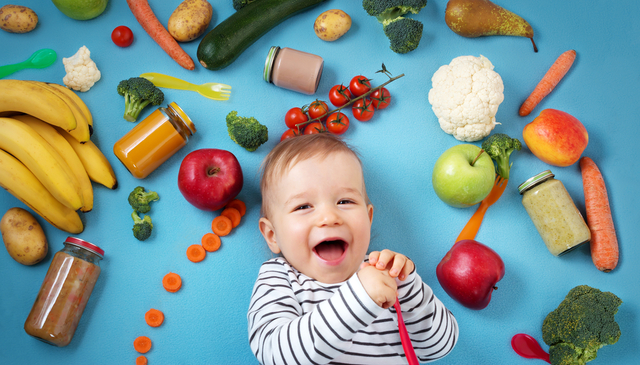A food allergy refers to an adverse immune response triggered by some foods such as peanut, egg or milk. A food allergy can lead to serious illnesses and hence, parents should pay extra attention to the common foods that may cause allergy in children.
Common foods that may cause allergy:
1. Peanuts
2. Tree nuts
3. Eggs
4. Milk
5. Soy
6. Chocolate
7. Strawberries
8. Wheat
9. Shellfish
10. Fish
Most children may outgrow their allergies, but some food allergies may last throughout their lives.
A food allergy is an extreme reaction and it can become very severe. If your child eats the above foods or other foods for the first time, you should pay close attention to the reaction of your child. If there is an allergic reaction such as swelling of the face or neck, dizziness or trouble in breathing, you should bring your child to the doctor quickly.
Symptoms of a food allergy:
1. Severe nausea or vomiting
2. Diarrhea
3. Stomach cramps or pain
4. Red, itchy rash (hives)
5. Swelling of the face
6. Eczema
7. Itch or swelling of the lips, tongue, or mouth
8. Throat itch or tightness
9. Dizziness and lower blood pressure
10. Asthma symptoms, coughing, runny or stuffy nose, wheezing, or trouble breathing
If your child has an allergy to milk and soy, the symptoms may be different. They may include:
1. Colic or fussy behaviour
2. Blood in stool
3. Poor growth
Symptoms of a severe allergic reaction:
1. Trouble breathing
2. Extreme throat tightness
3. Difficulty in talking
4. Swelling of the face, lips, tongue and throat
5. Pale blue, moist and cool skin
6. Faintness
7. Nausea or diarrhea
8. Fast and weak heartbeat
9. Dizziness and a sudden drop in blood pressure
10. Passing out
11. Seizure
How to treat a food allergy
There is no medicine to prevent food allergy in your child. The aim of treatment is to stay away from the foods that cause allergy in your child. It is very important that your child does not eat those foods or other similar foods in that food group.
For a child who has had a severe food reaction, the doctor may prescribe an emergency kit that contains epinephrine. This will help to stop the symptoms of severe reactions. Your doctor will teach you how to use it properly.
If you are breastfeeding, remember not to consume the foods that will cause an allergy in your child. This is because small amounts of the food allergen will be passed on to your child through your breast milk.
If your child is unable to eat certain foods, you should find other alternatives to that food or provide him or her with vitamin supplements. You can consult your doctor for more information on what vitamins he or she should take.
You may offer your child the foods again after 3 to 6 months to see if he or she has outgrown the allergy. However, you may only do so when you get the permission from your doctor. This is because many allergies are short-term in children and children will most likely be able to take the foods after turning 3 or 4 years old.
Your doctor will also advise you to change your baby's formula from a milk formula to a soy one if your baby suffers from milk allergy.
How to prevent food allergies
1. Breastfeed your baby for the first 6 months.
2. Studies have shown that exposing foods that are common causes of allergy to your child as early as possible may prevent him or her from developing an allergy to those foods at a later stage. However, you should still strictly adhere to the minimum age at which those foods can be consumed by a baby.
3. Avoid giving your child cow's milk, wheat, eggs and peanuts in your baby's first year of life. However, if you have exclusively breastfed your baby for 4 months and your child is not at risk for allergy, you may introduce egg yolks for your baby at around 6 or 8 months of age. As egg yolks do not contain the proteins that can cause allergies unlike the egg whites, many medical resources are now recommending egg yolks as a great first food for babies.
4. If your family members have a history of food allergies, you can wait for 4 days before introducing a new food after another.
For example, if you introduce your baby to avocado on Monday, you should then wait for Friday to introduce him or her to another new food. This is because over the period of 4 days, you can better determine whether a certain new food can cause an allergy in your child.
5. You should inform your child's caregiver if your child is allergic to any foods. If your child eats in the childcare or preschool, you should alert the teachers about your child's allergic reaction to certain foods. If your child brings food to the school or childcare, try not to bring foods that contain peanuts, nuts, eggs or milk as the other children may be allergic to these common food allergens.
In addition, you should inform your child's caregiver of the foods that your family members have a history of allergy to and ensure that he or she pays extra caution when introducing it to your baby.
Check pediatrician in Singapore if you are looking for pediatrician in Singapore.
